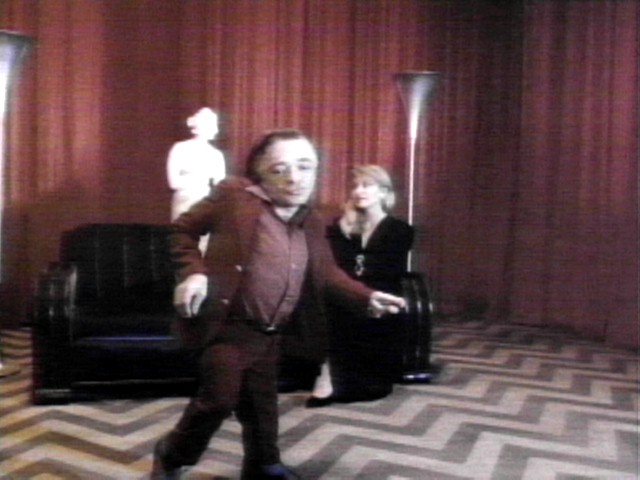This week, we'll be screening Joel and Ethan Cohen's 1998 film The Big Lebowski.
When we think of cult movies, many times we think only about films that are "gloriously bad" or "so-bad-they're good." The image of Edward D. Wood, Jr. comes to mind. The other side of the coin, however, has a picture of David Lynch on it. See, films made by folks like David Lynch are far from incompetent, like our Guilty Pleasures. They are in fact staggeringly accomplished in their execution. It takes an uncommon control of filmmaking tools and vernacular to be able to tell an utterly idiosyncratic story in a way that makes it comprehensible to a mass audience.
 |
| In the Black Lodge, you will probably see midgets, and they may dance. But they'll definitely talk backwards. So you just need to deal. |
That brings us to this week's film, The Big Lebowski, which has spawned a festival, several books, a spike in the sale of White Russians (the drinks, not the humans), and at least one religion. In this film, which appropriately tanked at the box office (an unwritten rule of cult films), the Coen Brothers essentially remake the 1946 Humphrey Bogart/Lauren Bacall movie The Big Sleep, except with pornographers, Vietnam vets, feminist artists, cowboy narrators, bowling, pedophiles, In N Out Burger, and 20+ years of insider Hollywood stories. What about this doesn't spell "Box Office Goldmine"?
Clearly, we have strayed off the beaten path, here. But to put all of this stuff in a pot and make a gumbo that doesn't just immediately make you ill, the Coen Brothers required total command of their filmmaking faculties. They subsequently tried more straightforward remakes, like The Ladykillers and True Grit, which were substantially less effective films, so this is no mean feat they pulled off. What they were able to accomplish was to use Hollywood studio money to tell an extremely personal story (i.e., one that they found interesting with no assurance anyone else would), that eventually found an audience with which it could resonate.
And resonate, it did. The Big Lebowski is a David Lynch par excellence, and here are three keys to its success:
- It was made by competent, professional filmmakers, who
- Possess a clear and idiosyncratic vision, and
- Did not set out to make a cult film.
- You don't know what you're doing, and
- You're spending your own money, and
- You're far more likely to make a Guilty Pleasure than a David Lynch, even if you're successful
These are problems. But fear not, next week we will discuss the kinds of films young filmmakers may hope to accomplish, given their own limited means.